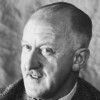Halldor Laxness

Halldor Laxness
Halldór Kiljan Laxness; born Halldór Guðjónsson; 23 April 1902 – 8 February 1998) was a twentieth-century Icelandic writer. Laxness wrote poetry, newspaper articles, plays, travelogues, short stories, and novels. Major influences included August Strindberg, Sigmund Freud, Sinclair Lewis, Upton Sinclair, Bertolt Brecht and Ernest Hemingway. He received the 1955 Nobel Prize in Literature; he is the only Icelandic Nobel laureate...
NationalityIcelandic
ProfessionNovelist
Date of Birth23 April 1902
CityReykjavik, Iceland
CountryIceland
This was the first time that he has ever looked into the labyrinth of the human soul. He was very far from understanding what he saw. But what was of more value, he felt and suffered with her. In years that were yet to come, he relived this memory in song, in the most beautiful song this world has known. For the understanding of the soul's defencelessness, of the conflict between the two poles, is not the source of the greatest song. The source of the greatest song is sympathy.
A free man can live on fish.Independence is better than meat
You have fettered yourself of your own free will, man-break the fetters!
What you have stolen can never be yours.
Human beings, in point of fact, are lonely by nature, and one should feel sorry for them and love them and mourn with them. It is certain that people would understand one another better and love one another more if they would admit to one another how lonely they were, how sad they were in their tormented, anxious longings and feeble hopes.
Bjartur declared that he had never denied that there was much that was strange in nature. "I consider that there's nothing wrong in believing in elves even though their names aren't on the parish register," he said. "It hurts no one, yes and even does you good rather than harm; but to believe in ghosts and ghouls-that I contend is nothing but the remains of popery and hardly fit for a Christian to give even a moment's consideration." He did his utmost to persuade the women to accept his views on these matters.
He continued on, on to the glacier, towards the dawn, from ridge to ridge, in deep, new-fallen snow, paying no heed to the storms that might pursue him. As a child he had stood by the seashore at Ljósavík and watched the waves soughing in and out, but now he was heading away from the sea. "Think of me when you are in glorious sunshine." Soon the sun of the day of resurrection will shine on the bright paths where she awaits her poet. And beauty shall reign alone.
A wise man once said that next to losing its mother, there is nothing more healthy for a child than to lose its father.
My opinion has always been this. That you ought never to give up as long as you live, even though they have stolen everything from you. If nothing else, you can always call the air you breath your own, or at any rate you can claim that you have it on loan. Yes, lass, last night I ate stolen bread and left my son among men who are going to use pick-handles on the authorities, so I thought I might as well look you up this morning.
Of all the creatures that man kills for his amusement there is only one that he kills out of hatred—other men. Man hates nothing as much as himself. That is why war is called the leprosy of the human soul.
Don't forget that few people are likely to tell more than a small part of the truth: no one tells much of the truth, let alone the whole truth. Spoken words are facts in themselves, whether true or false. When people talk they reveal themselves, whether they're lying or telling the truth.
It's a useful habit to never believe more than half of what people tell you, and not to concern yourself with the rest. Rather keep your mind free and your path your own.
It's a pity we don't whistle at one another, like birds. Words are misleading.
Remember, any lie you are told, even deliberately, is often a more significant fact than a truth told in all sincerity.